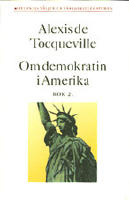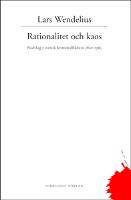Naturen, vetenskapen och förnuftet [Elektronisk resurs] upplysningens dialektik och det andra moderna
Böcker. 2019.
The topic of this study is one specific area where the tension between instrumental rationality and value rationality becomes prominent: the question whether we have a rational responsibility for nature or not. Such a responsibility cannot be derived from instrumental reason, but it is argued that it can be derived from discourse ethics and communicative rationality. The study begins with an examination of Georg-Henrik von Wright's cultural criticism. It is argued that his subjectivist view of values limits reason to the realm of instrumental rationality. Horkheimer and Adorno's theory of instrumental reason is examined. They claim that instrumental reason, through the negative dialectics of the enlightenment, have created a vacuum with regard to values. Marcuse's anthropological solution to the problem of values, and his theory of an emancipatory science and technology, are examined and rejected as Utopian. The philosophy of Jürgen Habermas is examined, and it is shown how he solves the problem of his predecessors through the dual framework of work and interaction. His hypothesis of three knowledge- constitutive interests is analyzed, and it is concluded that a general theory of communication is needed in order to solve the problem of value rationality. It is shown how Habermas later theory of communicative rationality and discourse ethics overcomes the shortcomings of his earlier theory. It is argued, among other things, that his theory of communicative rationality is compatible with a correspondence theory of truth, ontological realism and epistemological fallibilism. Discourse ethics makes a rational discussion of values and norms possible. It is argued that it solves the problem of value rationality, but without providing a definition of the good or the right. It is shown that revisabilty is an important part of discourse ethics. This is manifested in the hypothetical status of discourse ethics, and in the revisability of the norms proposed. It is argued that we are in fact able to rationally propose a norm, which demands responsibility for nature within the framework of communicative rationality and discourse ethics, although such a norm must be the result of the outcome of a rational discourse and is itself, revisable.
Diss. Umeå : Umeå universitet, 2001
Förlagsfakta
- ISBN
- 9789171919724
- Titel
- Naturen, vetenskapen och förnuftet [Elektronisk resurs] upplysningens dialektik och det andra moderna
- Författare
- Nilsson, Per - Andersson, Gunnar - Umeå universitet Humanistiska fakulteten
- Utgivningsår
- 2019




















